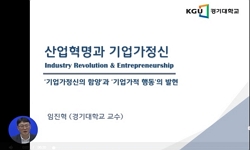본고는 박연희의 신문연재소설 『홍길동』(1972~1974)에 형상화된 혁명의 불가능성과 비판적 역사 인식을 고찰한다.『홍길동』은 혁명의 실천 주체인 홍길동이 스승, 동료, 민중, 지식인, 지배...
http://chineseinput.net/에서 pinyin(병음)방식으로 중국어를 변환할 수 있습니다.
변환된 중국어를 복사하여 사용하시면 됩니다.
- 中文 을 입력하시려면 zhongwen을 입력하시고 space를누르시면됩니다.
- 北京 을 입력하시려면 beijing을 입력하시고 space를 누르시면 됩니다.

박연희의 『홍길동』 속 변혁의 좌절과비판적 역사 인식 = The Frustration of Transformation and Critical Historical Consciousness in Park Yeon-hee’s Hong Gildong(1972~74)
한글로보기https://www.riss.kr/link?id=A109691887
-
저자
김진규 (가천대학교)
- 발행기관
- 학술지명
- 권호사항
-
발행연도
2025
-
작성언어
Korean
-
주제어
홍길동 ; 허균 ; 역사소설 ; 혁명 ; 제행무상 ; 민주회복 국민선언 ; Hong Gil-dong ; Heo Gyun ; Historical Novel ; Revolution ; Impermanence ; Declaration for the Restoration of Democracy
-
등재정보
KCI등재
-
자료형태
학술저널
-
수록면
329-354(26쪽)
- DOI식별코드
- 제공처
-
0
상세조회 -
0
다운로드
부가정보
국문 초록 (Abstract)
본고는 박연희의 신문연재소설 『홍길동』(1972~1974)에 형상화된 혁명의 불가능성과 비판적 역사 인식을 고찰한다.『홍길동』은 혁명의 실천 주체인 홍길동이 스승, 동료, 민중, 지식인, 지배층 모두로부터 지지를 얻지 못한 채 점진적으로 소외되어 가는 과정을 통해, 공동의 가치 형성에 실패한 변혁이 좌절되는 양상을 보여준다. 박연희는 혁명의 실패를 통해 역사적 허무주의를 나타내는 것이 아니라, 반복되는 비극적 역사 속에서도 이상을 추구하려는 인간의 의지를 ‘제행무상(諸行無常)’을 통해 형상화한다. 특히 인조반정 이후 사회의 기본 구조가 변화하지 않았음을 비판하고, 새로운 지배 권력 역시 몰락할 수 있음을 지적함으로써, 권력 체제의 무상함과 변혁의 필요성을 성찰한다. 본고는 이러한 비판적 역사 인식이 드러난 작품의 결말 부분 연재 기간이 박연희가 1974년 ‘민주회복 국민선언’에 서명하며 현실 정치에 대한 비판적 인식을 표명한 시기와 겹친다는 사실을 통해 『홍길동』이 1970년대 군사독재 체제에 대한 비판과 변혁에 대한 끈질긴 모 색을 보여주는 작품으로 읽을 수 있음을 밝히고자 하였다.
다국어 초록 (Multilingual Abstract)
This study analyzes Park Yeon-hee’s newspaper-serialized novel Hong Gildong(1972-1974), focusing on its depiction of the impossibility of revolution and its critical historical consciousness. Hong Gil-dong illustrates the failure of transformative m...
This study analyzes Park Yeon-hee’s newspaper-serialized novel Hong Gildong(1972-1974), focusing on its depiction of the impossibility of revolution and its critical historical consciousness. Hong Gil-dong illustrates the failure of transformative movements by portraying the gradual isolation of Hong Gil-dong, the revolutionary agent, who is unable to gain support from his mentors, comrades, the populace, intellectuals, and the ruling class. However, Park does not simply present the failure of revolution as historical nihilism; instead, he embodies the human will to pursue ideals even within the cycles of historical tragedy through the motif of “impermanence(諸行無常).” Particularly, by criticizing the fundamental continuity of social structures even after the Injo Restoration and pointing out the inevitable decline of newly established powers, the novel reflects on the transience of political systems and the necessity of continued transformation. This paper further reveals that the concluding episodes of Hong Gil-dong were serialized during the period when Park Yeon-hee signed the 1974 “Declaration for the Restoration of Democracy,” thereby positioning the novel as a literary work that persistently pursued change and criticized the military dictatorship of the 1970s.
동일학술지(권/호) 다른 논문
-
‘싸늘한 방관자’, 개성(開城) 사람으로 서울에서 문학 하기 - 박완서 대하소설『미망(未忘)』을 중심으로
- 한국현대문학회
- 손가인
- 2025
- KCI등재
-
월남민의 정동과 ‘난민-되기’의 기획 - 박순녀의 1960~70년대 소설을 중심으로
- 한국현대문학회
- 장여진
- 2025
- KCI등재
-
주간지의 시대, 규범 바깥의 문학적 실험 - 김승옥의 「60년대식」과 박태순의 「낮에 나온 반달」을 중심으로
- 한국현대문학회
- 정현지
- 2025
- KCI등재
-
- 한국현대문학회
- 이광욱
- 2025
- KCI등재




 DBpia
DBpia






